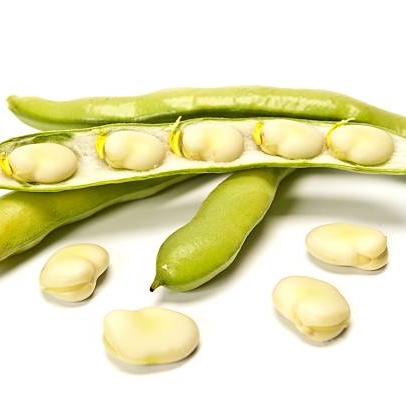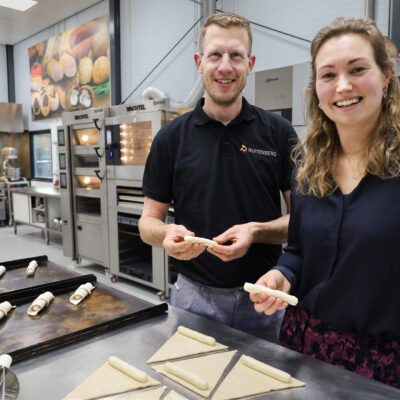New consortium starts PULSE project, aimed at protein transition

Research on pea, faba bean and lupin provides impulse into application of plant-based proteins in our diet. We need to increase the proportion of plant-based proteins in our diet if we are to meet future global food demand in a sustainable way. Legumes are a good source of these proteins, ideally locally grown. But further research is needed. PULSE, a recently approved SIA-RAAK consortium, focusses on developing high-quality protein ingredients from legumes.
PULSE (Protein Utilisation from Legumes for a Sustainable European crop) is a collaboration between HAS University of Applied Sciences and contract research organisation NIZO, together with seven other companies: Limagrain, GEA, Cosucra, MFH Pulses, Ruitenberg Ingredients and Sofine Foods. The members of the consortium cover the entire supply chain, from seed breeding to consumer products. “It is very important that the research focusses on the entire chain,” says project manager of the PULSE project Fred van de Velde, principal scientist Protein Functionality at NIZO and senior lecturer/researcher protein transition at HAS. “This is the only way we can achieve our ambitious goals.”
Sustainable protein production
The partners’ aims are to include developing and selecting varieties of peas and faba beans with increased protein content, or that have a better protein composition. “Our ambition is to apply these proteins in a wide variety of food products,” according to Van de Velde. “For example, we would replace egg, milk or meat proteins.” Therefore, the project also addresses the functionality of the proteins in various food product and the impact of processing thereon. An additional advantage is that these improvements will make the crops more attractive to cultivate for agricultural entrepreneurs. Henny van Gurp, Senior Project Leader Plant at Dutch Southern Agriculture and Horticulture Organization (ZLTO): “Together with our members, we are continuously searching for possibilities to increase the value of crops. By making protein crops available for human consumption, we can create new value for farmers.”
Business-education partnerships
HAS University of Applied Sciences integrates this project in its teaching programmes. The project will start at the beginning of the new academic year in September 2017, with a number of final-year assignments with various consortium partners, and with other projects for students from earlier academic years. HAS University of Applied Sciences is enthusiastic about the win-win situation created by projects, such as PULSE. Chair of the Board of Directors, Dick Pouwels: “We strongly believe in the power of innovation within the sector and are keen to help companies realise this innovation. And we make conscious decisions with respect to addressing particular societal issues.”


 Nederlands
Nederlands




